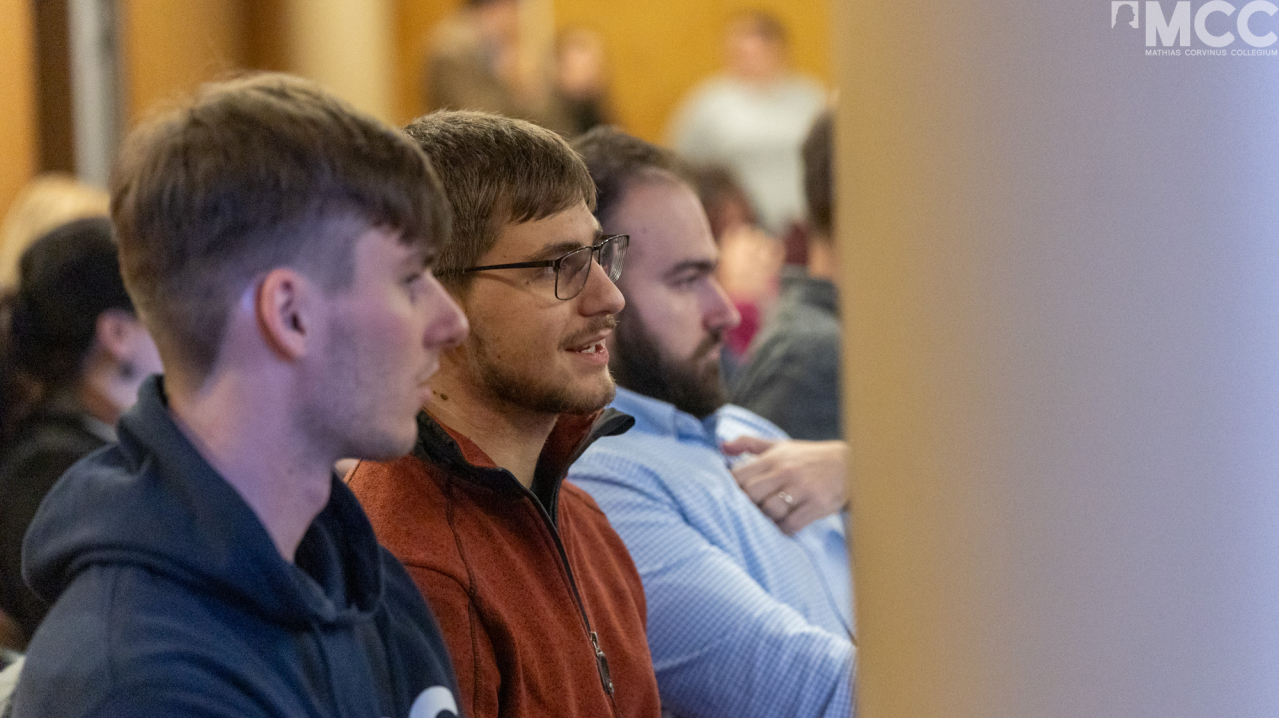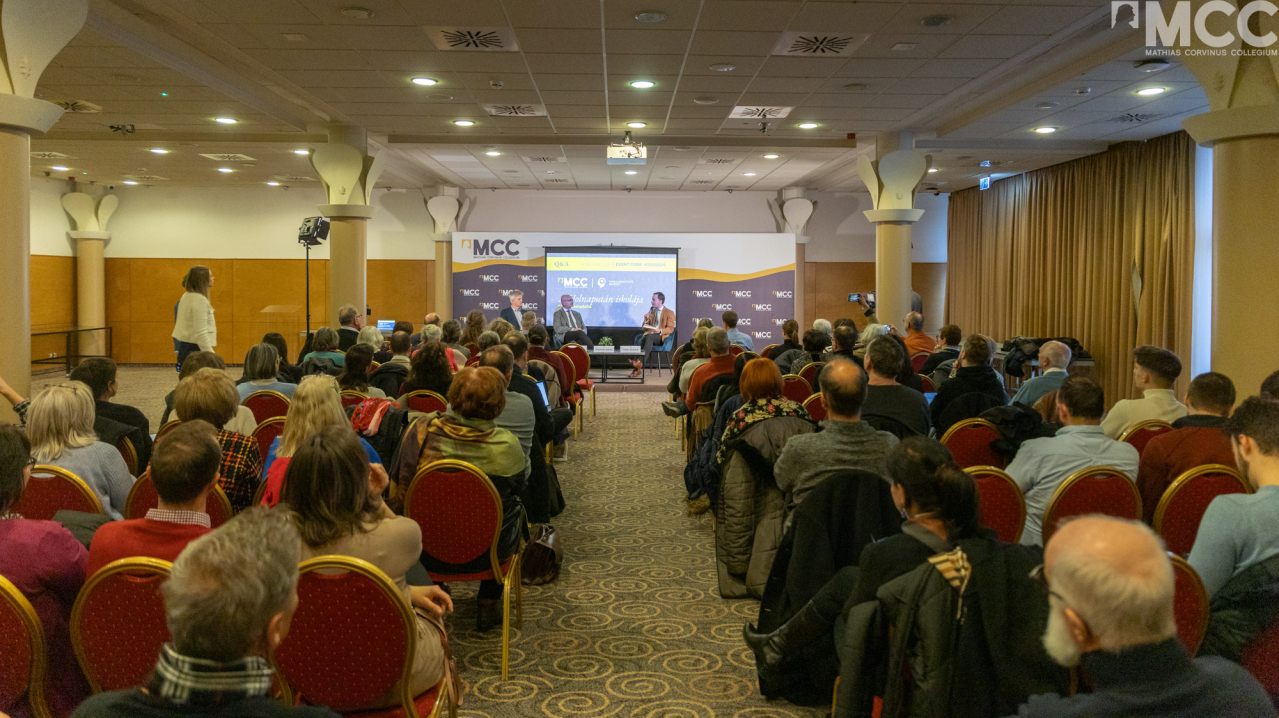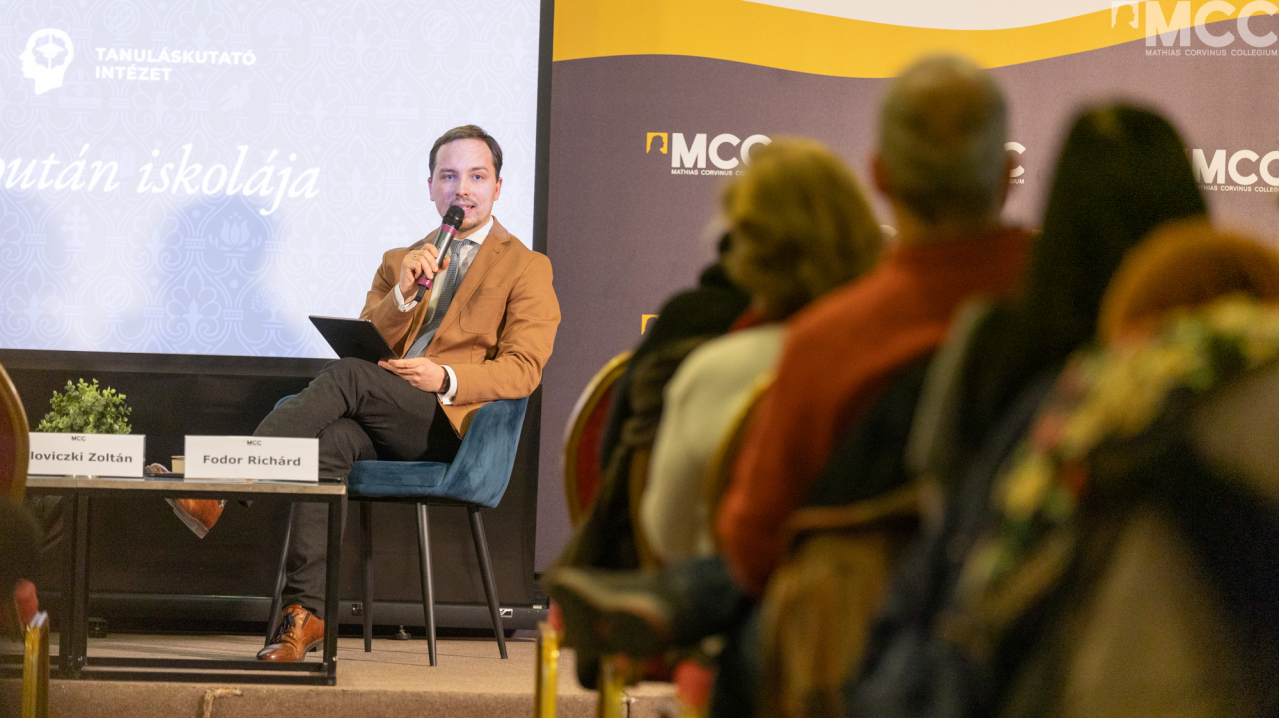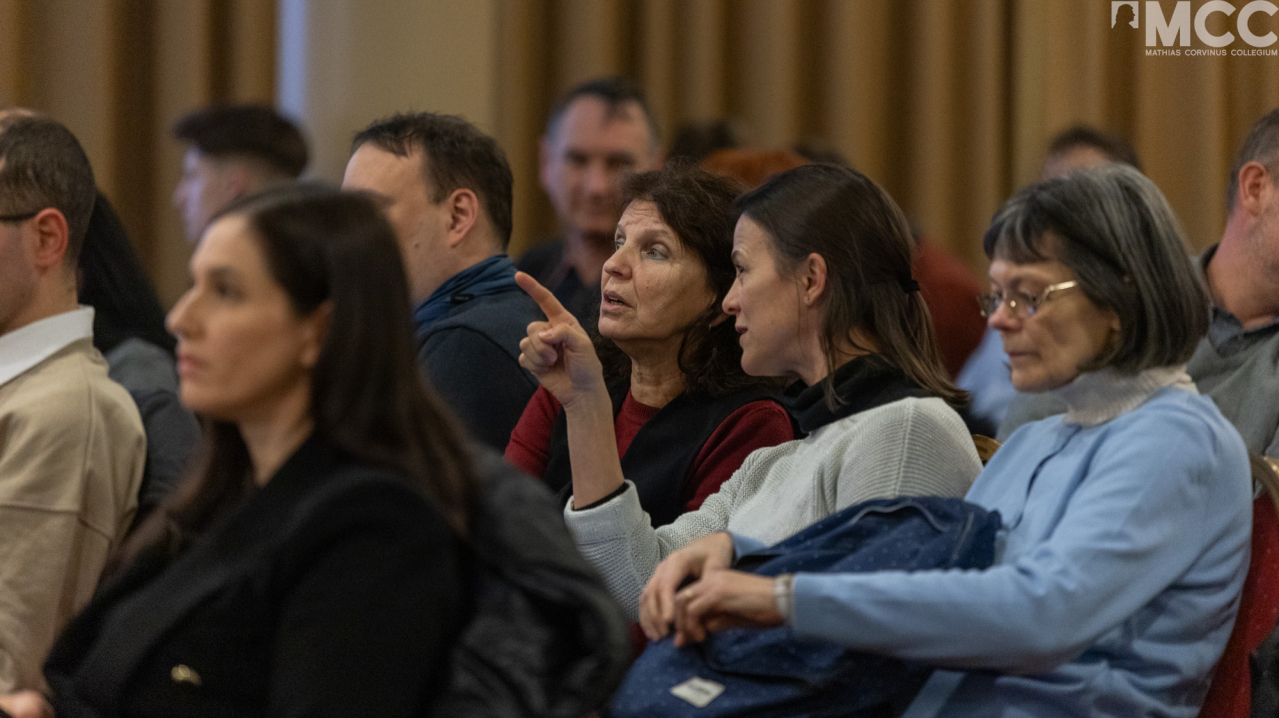Reading time: 4 minutes
On January 15, our Learning Institute organized the launch of Zoltán Gloviczki's latest book. Gloviczki, the rector of Apor Vilmos Catholic College, chairman of the MRK Teacher Training Committee, and a prominent figure in Hungarian education policy, presented his new work during the event. The book, titled "The Day After Tomorrow's Education – Preparing for the Human Future", was presented with the author joined in conversation by János Setényi, director of the Learning Institute, and Richárd Fodor, research leader.
In his book The Day After Tomorrow's Education, Zoltán Gloviczki explores the modern challenges and opportunities of education. His central question is what role schools must assume in a rapidly changing social and technological environment. The book addresses not only the fundamental goals of education but also the role of teachers, the integration of technology, and the significance of the arts. Gloviczki emphasizes that schools are not merely for transmitting factual knowledge but also serve as spaces for value transmission, personality development, and community building.
The book pays special attention to rethinking educational objectives in a 21st century significantly shaped by artificial intelligence (AI). Gloviczki offers a critical perspective on the global education system, which he sees as overly knowledge-based, often focusing on mechanical learning rather than fostering the "4Cs"—critical thinking, creativity, communication, and collaboration. He argues that schools must strive to develop both individuals and communities.
Throughout the book, Gloviczki critiques the rigid dichotomy between conservative and progressive pedagogical approaches. During discussions, the author distinguished conservative thinking—which he personally aligns with—from a conservative school system. He asserts that the essence of a future-ready school is progressiveness, nuanced with the Latin etymology of progero ("to move forward"). János Setényi, emphasized that labels matter less: "It doesn’t matter if the cat is black or white, as long as it catches the mouse." He also pointed out that learning is a challenging, complex activity requiring commitment and perseverance, which cannot be replaced by games and entertainment alone.
One recurring critique in Gloviczki’s work is the persistence of 19th-century structures in the education system, including the replication of classical academic disciplines and an ever-expanding body of knowledge that often lacks direct relevance to students' lives. He connects this to the historical expansion of education, referencing Oxford University statistics showing that between 1820 and 2020, the percentage of 15-year-olds in formal education rose from under 20% to nearly 90%. As education expanded, its role evolved and gained numerous additional functions.
The discussions also addressed literacy and functional illiteracy, questioning whether the literacy acquired in the first four grades adequately prepares all students for science-based learning from the fifth grade onward. This led to debates about selection processes in schools and how to address students falling behind.
Gloviczki emphasized that AI cannot replace human connections in education, nor should it be seen as a competitor. He identified three areas where AI is already effective: language education, mathematical skill development, and supporting children with certain cognitive challenges. However, he stressed the need for schools to adapt the classical goals of pedagogy to the era of AI and the metaverse. These goals include foundational knowledge development, personality growth, and learning how to learn.
The author also discussed how AI can assist teachers in individualizing the learning process, tracking progress, enhancing motivation, and differentiating learning materials. However, he warned that the ethical and societal implications of AI usage must be thoroughly examined. Echoing this, János Setényi stated that AI is merely a tool to benefit teachers and students, not the centerpiece of the educational process.
Another significant topic was the importance of the arts and reading. According to Gloviczki, arts education develops emotional intelligence and helps students understand and appreciate the world around them. “Reading is not just about acquiring information but a tool for developing thought and human relationships,” he noted, adding that literary works invite children on journeys essential for personal growth. Setényi highlighted that reading comprehension is fundamental not only for individual success but also for community life.
Teacher training was also a key focus. Gloviczki argued that the current system does not meet today’s challenges, describing it as resistant to change and in need of substantial reform. He called for a comprehensive overhaul that recognizes the real role of teachers in society and equips them with the necessary skills and resources. "Teachers are not just instructors but also mentors and community builders," he stated. He suggested exploring public-service teacher training as a pilot initiative, reserving judgment until practical experience provides more insight.
Setényi added that strengthening practical experience is essential for teacher training. “It’s not enough to prepare teachers through abstract lectures and textbooks. They must gain experience in real school environments and face real challenges.” Gloviczki also emphasized the importance of developing empathy and communication skills in teacher training, alongside imparting subject knowledge.
The Day After Tomorrow's Education – Preparing for the Human Future deserves the attention of both education professionals and society as a whole, as it addresses fundamental questions that will shape all our futures.





